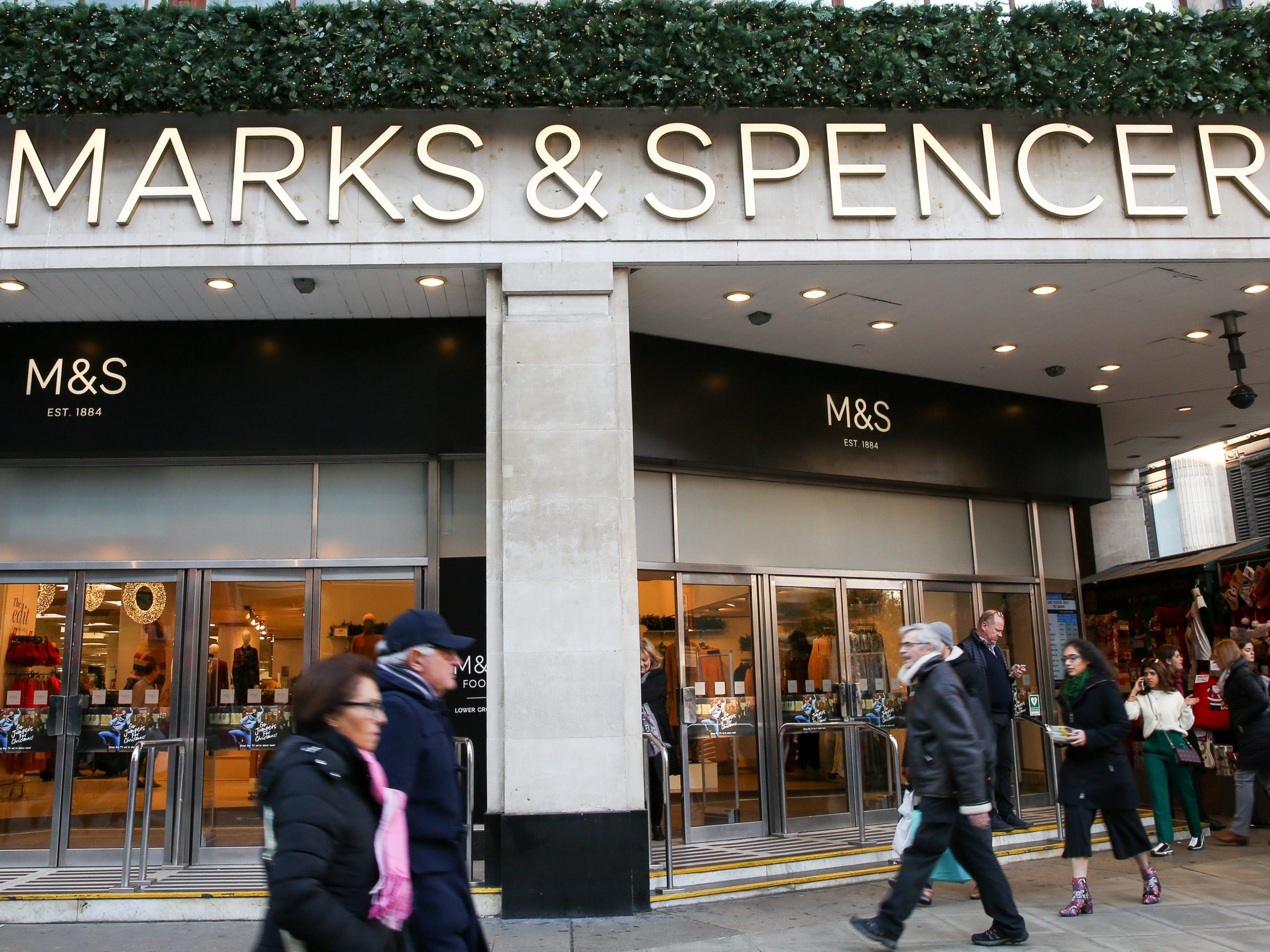
- British retailer Marks & Spencer (M&S) posted a half-year pre-tax loss of £87.6 million ($114.0 million).
- Sales of clothing and homeware, which usually account for a third of its UK retail revenues, plunged during the pandemic.
- It’s the first half-year loss for M&S in 94 years.
- But M&S said the business performed “better than expected,” after total revenues fell by a third less than it had anticipated. Food sales remained stable, it said.
- Visit Business Insider’s homepage for more stories.
Marks and Spencer (M&S) posted its first half-year loss in 94 years Wednesday as COVID-19 dragged its clothing sales down.
The upmarket British retailer recorded a £87.6 million ($114 million) pre-tax loss for the six months ended September 26. Over the same time period last year, it made a £158.8 million ($206.7 million) profit.
Revenues were 15.8% down on last year, at £4.1 billion ($5.3 billion), as it sold fewer clothes and homeware items.
This still beat the company’s expectations; M&S expected its revenue to dive by 22.8%.
Its food sales were up 2.7% like-for-like, but fell by 0.3% in absolute terms.
Fewer people bought food to eat on-the-go and for events, M&S said, and instead they bought more milk, fish, poultry, frozen food, and grocery produce, because they cooked at home more often.
Food sales at M&S's airport, train station, and roadside stores fell by three-quarters, as fewer people traveled during lockdown.
M&S also bought a 50% stake in the retail arm of online grocer Ocado during the half-year. Ocado now delivers M&S own-brand products, replacing its longstanding partnership with grocer Waitrose in September.
The Ocado deal has allowed the supermarket chain to tap into the e-commerce market, which it had previously struggled to enter.
Ocado's retail revenue has skyrocketed during the pandemic, growing 47.9% in the half, as the shift to online grocery orders continues.
M&S also sells flowers, hampers, and wine directly through its own e-commerce site, and noted that these revenues had more than doubled in the half to September.
Online sales of clothing and homeware grew by a third, and the company noted that shoppers returned fewer items that normal. The retailer saw a "substantial shift" from work clothes and occasion wear to casual clothing, it said.
M&S's clothing and homeware revenues, which usually make up around a third of the company's total UK retail revenues, fell by 40.8% in the half because of store closures and reduced clothing demand. This led to a £107.5 million ($139.9 million) operating loss.
However, sales began to pick up again after non-essential stores were allowed to reopen in June, M&S noted, though these stores are due to close again from Thursday as England enters a second lockdown.
M&S also posted a fall in sales at its non-UK stores, despite online sales at these stores rising 75.4% in the half. Its international revenue declined 25.5% after countries introduced strict lockdown measures, and at the peak, 84% of its international stores were closed.
The company was especially hard-hit by closures in India, it said, where its focuses more heavily on clothing and homeware.
"The business has performed better than expected," M&S said, but warned that both COVID-19 and Brexit will create "significant uncertainty" in the short-term.
